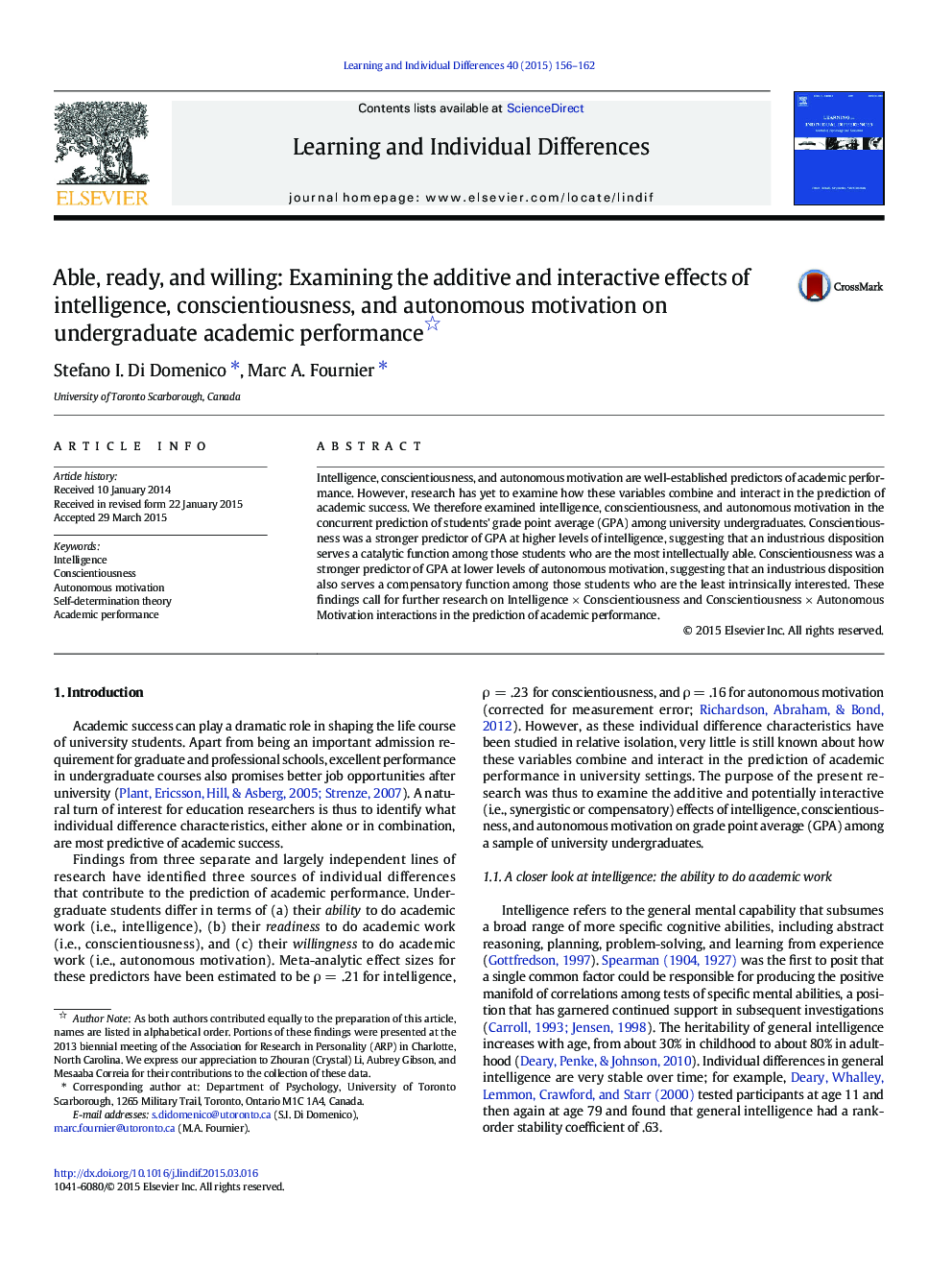| Article ID | Journal | Published Year | Pages | File Type |
|---|---|---|---|---|
| 364729 | Learning and Individual Differences | 2015 | 7 Pages |
•Conscientiousness was a stronger predictor of GPA at higher levels of intelligence.•Conscientiousness was a stronger predictor of GPA at lower levels of autonomous motivation.•Future directions for interaction models of academic achievement are considered.
Intelligence, conscientiousness, and autonomous motivation are well-established predictors of academic performance. However, research has yet to examine how these variables combine and interact in the prediction of academic success. We therefore examined intelligence, conscientiousness, and autonomous motivation in the concurrent prediction of students' grade point average (GPA) among university undergraduates. Conscientiousness was a stronger predictor of GPA at higher levels of intelligence, suggesting that an industrious disposition serves a catalytic function among those students who are the most intellectually able. Conscientiousness was a stronger predictor of GPA at lower levels of autonomous motivation, suggesting that an industrious disposition also serves a compensatory function among those students who are the least intrinsically interested. These findings call for further research on Intelligence × Conscientiousness and Conscientiousness × Autonomous Motivation interactions in the prediction of academic performance.
